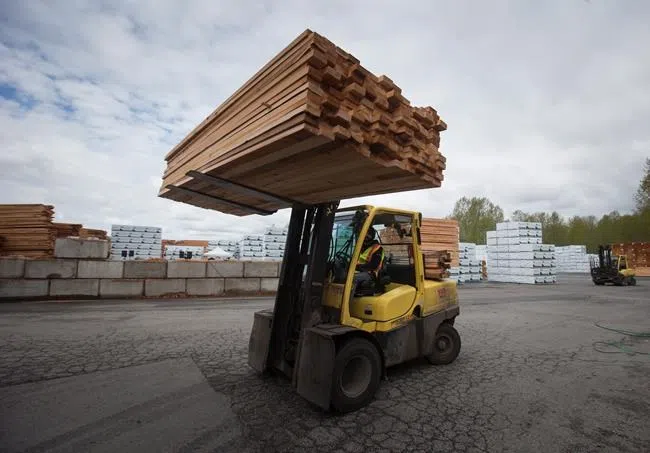
One year since new softwood duties, Canadian industry doing just fine
OTTAWA — One year after the United States imposed stiff import duties on Canadian softwood, strong demand for wood and record market prices mean American consumers and not Canadian producers are feeling the pinch.
Unlike the last softwood dispute with the U.S., which led to the loss of 20,000 forestry jobs and saw an estimated 400 sawmills close in Canada, this time the industry in Canada is holding up just fine so far.
There has been very little uptake in federal aid programs, predictions of widespread job loss and mill closures haven’t materialized, and demands to get a deal with the United States to solve the trade dispute seem to be taking a back seat to more pressing concerns about pests, forest fires and rail car shortages.
“We haven’t seen any (mill) closures linked to the trade dispute to this point,” said Derek Nighbor, president of the Forest Products Association of Canada.
